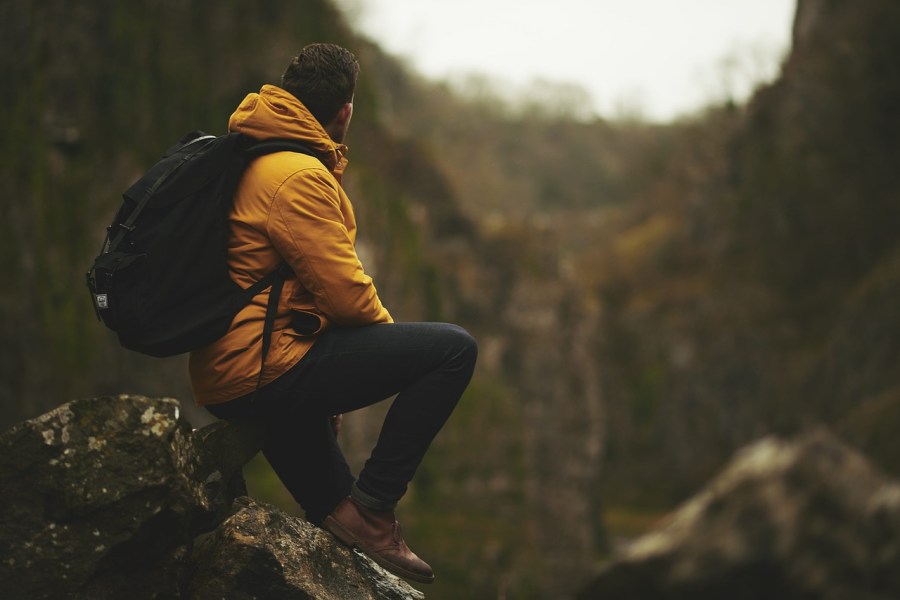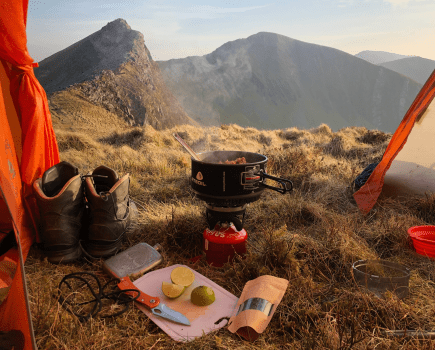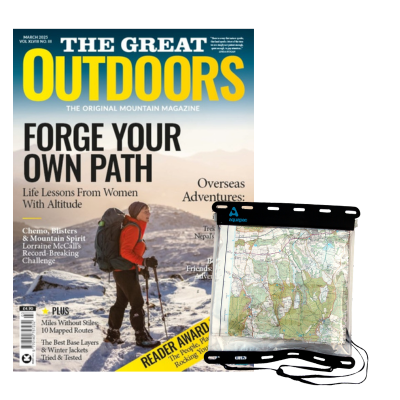During a time when the cost of living is affecting everyone, you might be wondering if you can use your regular backpack for hiking as well as everyday wear.
We all have a favourite rucksack whether it be your budget backpack that is now your ‘lucky pack’ or your backpacking pack for those long hikes. It could even be the one that fits your back like a puzzle piece or the bright orange number the colour of Autumn leaves. But if you don’t have any of those then you might be wondering if you can use a regular backpack for hiking in the great outdoors.
The simple answer is yes, you can. Gear shouldn’t be a barrier to enjoying the outdoors so a sturdy and well-fitting regular backpack for hiking will suffice for straight-forward, short walks – with a few important provisos.
However, if you’re looking to get out and stay out on wild camping, backpacking or thru-hiking adventures, you should consider investing in a specialist hiking pack of between 30 and 60 litres and beyond to give you adequate back and hip support, as well as space for your essentials.
For now, we’ll assume you’re looking to use a regular backpack for hiking short distances over easy terrain. Given that outdoor clothing (somehow) became cool recently, there is the occasional crossover between everyday rucksacks and daypacks for walking.
But here are the features you can’t compromise on.
What makes a good regular backpack for hiking?
• Support
Any rucksack used for hiking needs to fit your body and offer a good level of support, with comfortable and breathable padding on the shoulder straps. Ideally, it will have an adjustable chest or sternum strap, and a waist or hip strap, to help spread the load. Padded hip fins offer further support.
• Capacity
The capacity of your pack should sit within the 15-35litre range for shorter hikes. It must be able to comfortably carry food and water, your first aid kit, adequate layers to keep you warm and dry, and a map and compass. Daypacks often feature internal and external pouches and pockets designed to give easy access to the essentials. Some include compression straps, sturdy clips, carabiners or webbing to secure other equipment such as bladders, ice axes and maps. These could be of benefit to you in the hills.
• Durability
Not all rucksacks on the market are water-resistant. But you will need to protect the contents of your pack while out in the changeable elements so don’t compromise on flimsy fabrics that hold water. Likewise, look out for tough materials that can withstand rough terrain. While they can usually be mended, you want to avoid snags, tears and rips while out.

Image credit: Francesca Donovan
Most importantly, when you consider using a regular backpack for hiking, you’ll need to assess its features and keep in mind the requirements of your own outdoor activities. There is no one-size-fits-all when it comes to packs and it may well be that a regular backpack for hiking is all you need to stay safe and comfortable on shorter walks outdoors.
Everyday rucksacks versus specialist outdoor daypack
Is it really worth investing in a specialist hiking backpack? Perhaps not for the first time, but as you get more into hiking, yes it will be.
There are many budget hiking backpacks on the market and with proper backpack care, these could last a long time and will vastly improve your experience outdoors. Some specialist backpacks even come with built-in features such as whistles, integrated rain covers and detachable compartments that can be turned into smaller daypacks. These additions could save you extra purchases in the long run if you are at the beginning of your journey outdoors but feel you might elevate your adventures down the road.
If you do decide to look to the expert makers in outdoor gear for your daypack purchase, check out our expert reviews and the ultimate Buyer’s Guide to daypacks.
If you decide to pick up a regular backpack for hiking trips, here are some further handy tips.
1. Invest in a trusted waterproof rain cover
2. Treat the fabric with a waterproofing product
3. Follow these tips to make your outdoor gear go further








